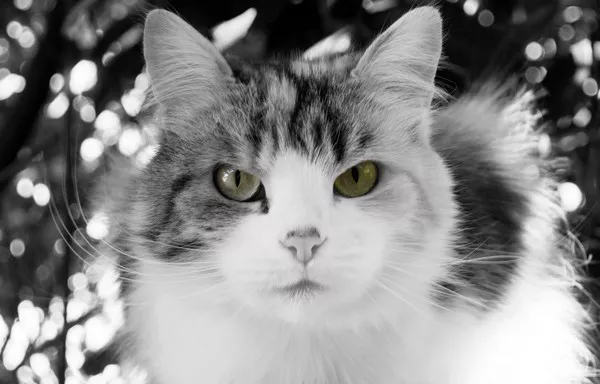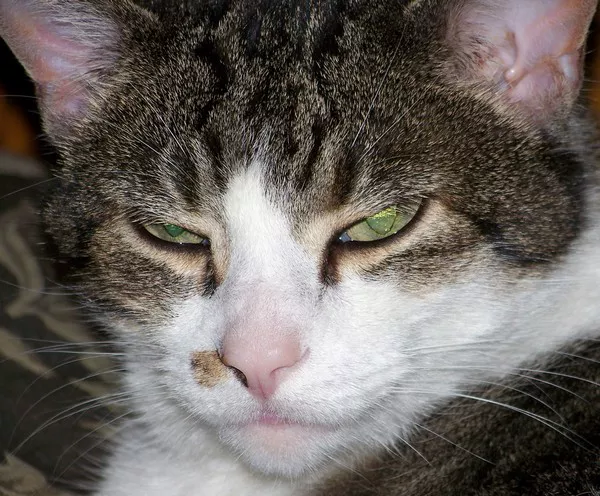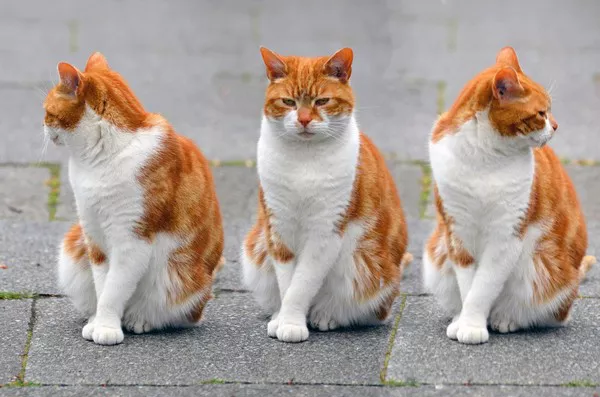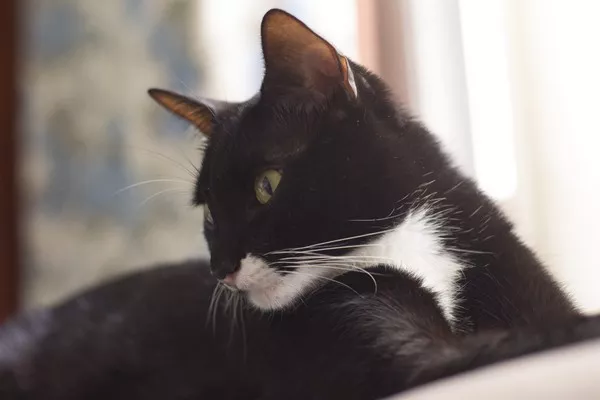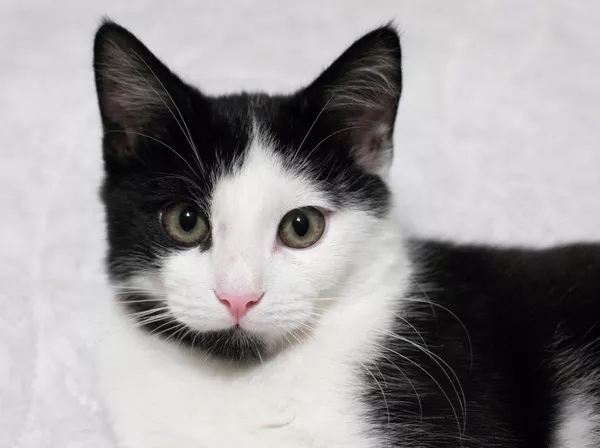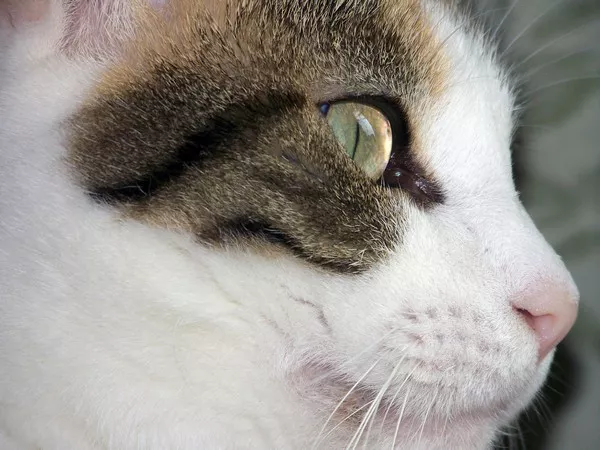The Korat, a striking and affectionate breed of cat, is cherished for its beautiful silver-blue coat and vibrant green eyes. Originating from Thailand, these cats are not only known for their distinctive appearance but also for their strong bonds with their human companions. One crucial aspect for potential and current Korat owners to consider is the lifespan of this breed. This article delves into the various factors affecting the longevity of Korats, providing a detailed understanding of their lifespan.
The Korat Breed
The Korat is an ancient breed with a history dating back to 14th century Thailand. Revered in Thai culture, Korats are often seen as symbols of good luck and prosperity. Their sleek, muscular bodies, combined with their affectionate and intelligent nature, make them a favorite among cat enthusiasts. To fully appreciate the lifespan of a Korat, it’s essential to understand the breed’s characteristics and care requirements.
Average Lifespan of Korats
The average lifespan of a Korat ranges between 15 to 20 years. This impressive longevity is comparable to other long-lived cat breeds. Several factors contribute to the Korat’s lifespan, including genetics, diet, environment, and healthcare. Understanding these elements can help owners maximize their pet’s life expectancy and ensure a healthy, happy life for their feline friend.
Genetics and Lifespan
Genetics play a pivotal role in determining the lifespan of any cat breed, including the Korat. These cats are generally robust and free from many of the hereditary issues that affect other breeds. However, like all purebred cats, they can be predisposed to specific genetic conditions. Responsible breeding practices can significantly reduce the incidence of such issues, thereby enhancing the overall health and longevity of the breed.
Common Genetic Health Issues
While Korats are generally healthy, they can be prone to a few genetic health problems. One of the most notable is GM1 and GM2 gangliosidosis, a rare inherited disorder that affects the nervous system. Breeders often test for these conditions to ensure they are not passed on to future generations. Regular veterinary check-ups can help in early detection and management of such genetic disorders.
Importance of a Balanced Diet
Diet is a fundamental factor influencing the lifespan of a Korat. A balanced, nutritious diet can prevent numerous health issues and contribute to overall well-being. High-quality commercial cat foods are formulated to meet the nutritional needs of Korats, but some owners may prefer to prepare homemade meals. Regardless of the choice, the diet should be rich in proteins, fats, vitamins, and minerals.
See Also: Are Korats Hypoallergenic?
Nutritional Needs of Korats
Korats have specific dietary requirements that must be met to maintain their health. Protein is crucial for muscle maintenance and overall energy. Fats provide essential fatty acids and are necessary for a healthy coat and skin. Vitamins and minerals support various bodily functions, including immune health and bone structure. Fresh, clean water should always be available to prevent dehydration.
Avoiding Obesity in Korats
Obesity is a common issue in domestic cats and can significantly shorten a cat’s lifespan. Korats are naturally active and agile, but overfeeding and lack of exercise can lead to weight gain. Monitoring food intake and encouraging regular physical activity can help prevent obesity. Regular weight checks and consultations with a veterinarian can ensure your Korat maintains a healthy weight.
Environmental Factors
The environment in which a Korat lives also impacts its lifespan. Indoor cats generally live longer than outdoor cats due to reduced exposure to hazards such as traffic, predators, and diseases. Providing a safe, stimulating indoor environment with plenty of enrichment activities can enhance the quality and length of life for a Korat.
Creating an Enriching Environment
Korats are intelligent and active cats that require mental and physical stimulation. Providing toys, climbing structures, and interactive play sessions can keep them engaged and happy. A stimulating environment reduces stress and boredom, which can contribute to a longer, healthier life.
Healthcare and Regular Veterinary Check-Ups
Regular veterinary care is crucial for detecting and managing health issues early. Routine check-ups, vaccinations, and dental care are essential components of maintaining a Korat’s health. Early detection of diseases can lead to more effective treatment and a better prognosis.
Preventative Healthcare
Preventative healthcare includes vaccinations, parasite control, and regular dental check-ups. Vaccinations protect against common feline diseases, while parasite control prevents issues caused by fleas, ticks, and worms. Dental health is often overlooked, but regular cleanings can prevent dental disease, which can impact overall health.
The Role of Neutering and Spaying
Neutering and spaying can have significant health benefits for Korats. These procedures reduce the risk of certain cancers and eliminate the possibility of reproductive issues. Additionally, neutering and spaying can prevent behavioral problems and reduce the likelihood of the cat roaming, which can expose them to dangers.
Genetic Screening and Breeding Practices
Responsible breeding practices, including genetic screening, play a vital role in ensuring the health and longevity of Korats. Reputable breeders test for genetic conditions and select healthy breeding pairs to reduce the incidence of hereditary diseases. This practice helps maintain the overall health of the breed and contributes to longer lifespans.
Exercise and Physical Activity
Regular exercise is essential for maintaining a Korat’s physical health. Active play sessions, climbing activities, and interactive toys can help keep your Korat fit and healthy. Exercise also helps prevent obesity and related health issues, contributing to a longer lifespan.
Mental Stimulation and Cognitive Health
Mental stimulation is as important as physical activity for Korats. These intelligent cats thrive on challenges and interactive play. Puzzle toys, training sessions, and social interaction can keep their minds sharp and prevent cognitive decline as they age.
Socialization and Companionship
Korats are social cats that form strong bonds with their human companions. Providing ample social interaction and companionship is crucial for their emotional well-being. A happy, well-socialized Korat is more likely to enjoy a long, fulfilling life.
Managing Stress and Anxiety
Stress and anxiety can negatively impact a cat’s health and lifespan. Korats can be sensitive to changes in their environment or routine. Providing a stable, secure environment and using calming techniques can help reduce stress and promote overall health.
Signs of Aging in Korats
As Korats age, they may exhibit signs of aging similar to other cats. These can include reduced mobility, changes in appetite, and alterations in behavior. Regular veterinary check-ups become even more important as your Korat ages to manage any health issues that arise.
Caring for Senior Korats
Senior Korats require special care to ensure they remain comfortable and healthy. This can include adjusting their diet to meet changing nutritional needs, providing softer bedding, and ensuring easy access to litter boxes and food. Regular veterinary visits are crucial to monitor health and address any age-related issues.
Conclusion
Korats are a delightful and long-lived breed, offering years of companionship and affection to their owners. By understanding the factors that influence their lifespan, such as genetics, diet, environment, and healthcare, you can help ensure your Korat lives a long, healthy, and happy life. Providing a balanced diet, regular exercise, mental stimulation, and preventative healthcare are key components of responsible Korat ownership. With the right care and attention, your Korat can enjoy a lifespan of 15 to 20 years, filled with love and joy.



